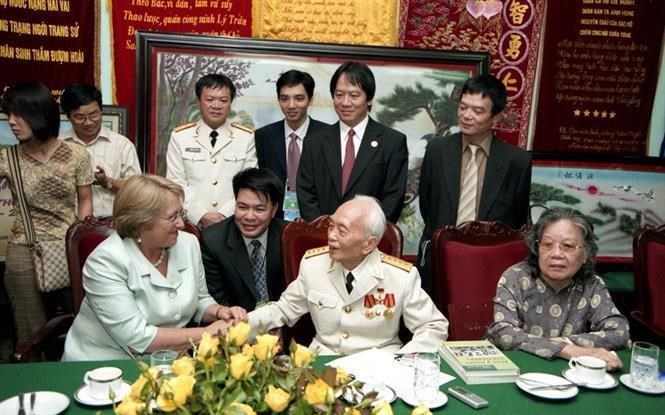
General Vo Nguyen Giap receives Chilean President Michelle Bachelet who is on an official visit to Vietnam, November 17, 2006. (Photo: VNA)
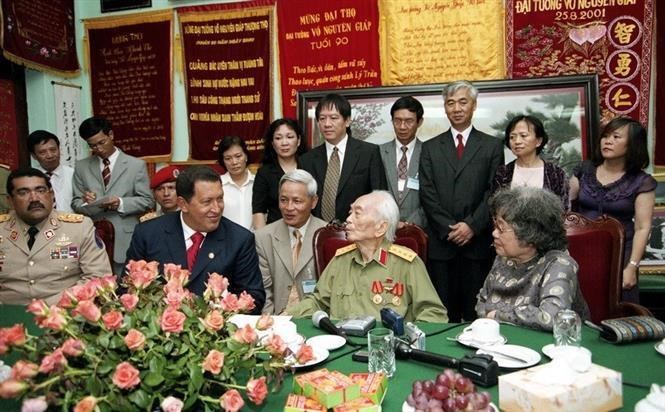
Venezuelan President Hugo Chávez pays a courtesy visit to General Vo Nguyen Giap at his house, August 1, 2006. (Photo: VNA)
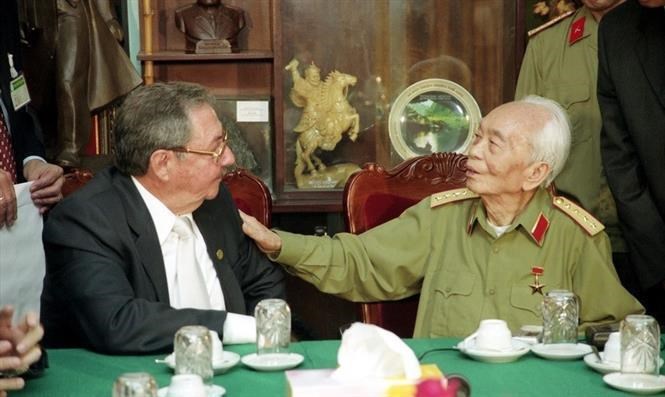
Second Secretary of the Communist Party of Cuba and First Vice President of the Council of the State and the Council of Ministers Raul Castro pays a courtesy visit to General Giap, Hanoi, April 28, 2005. (Photo: VNA)
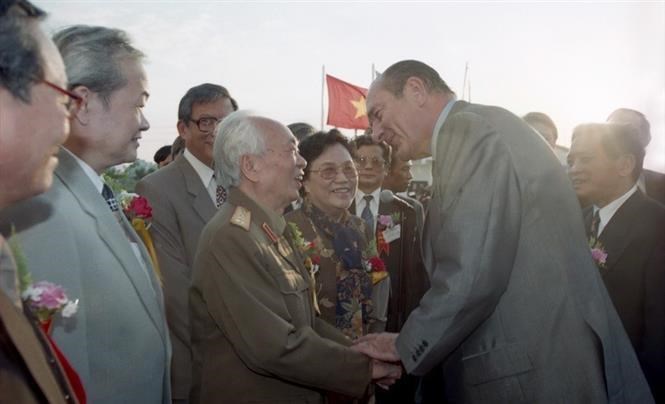
General Vo Nguyen Giap meets with French President Jacques Chirac who is on a friendship visit to Vietnam, November 12-15, 1997. (Photo: VNA)
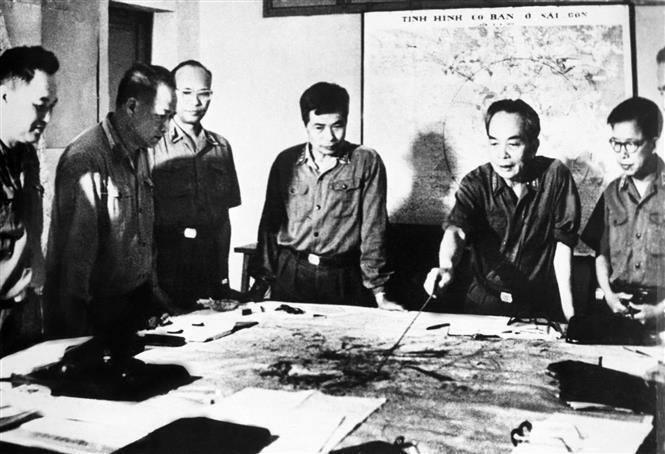
General Vo Nguyen Giap and leaders of the Central Military Commission keep a close watch on the developments of the Ho Chi Minh Campaign in 1975. (Photo: VNA)
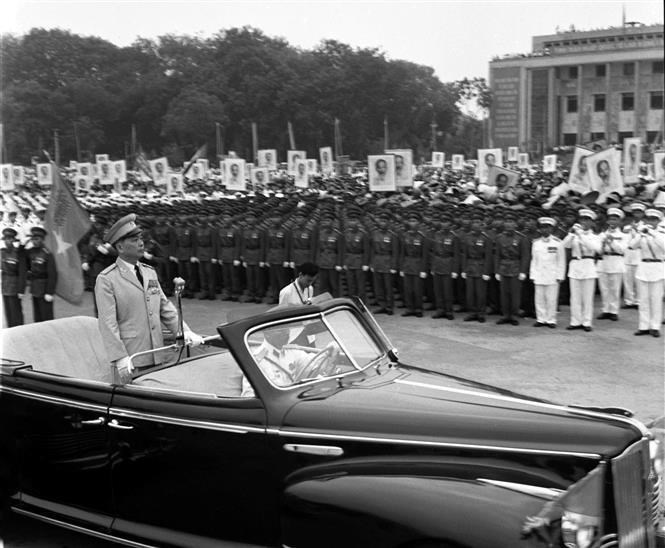
General Vo Nguyen Giap, Commander-in-chief of the Vietnam People’s Army, attends a parade at Ba Dinh Square. (Photo: VNA)
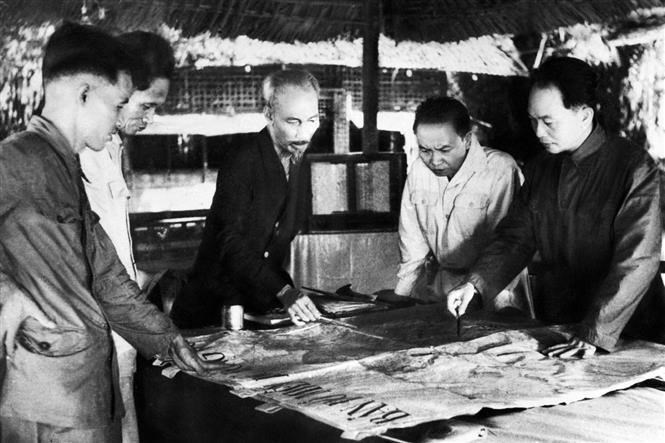
Command of the Dien Bien Phu Campaign: President Ho Chi Minh (centre), General and Commander-in-chief Vo Nguyen Giap (right), and members of the command (Photo: VNA archives).
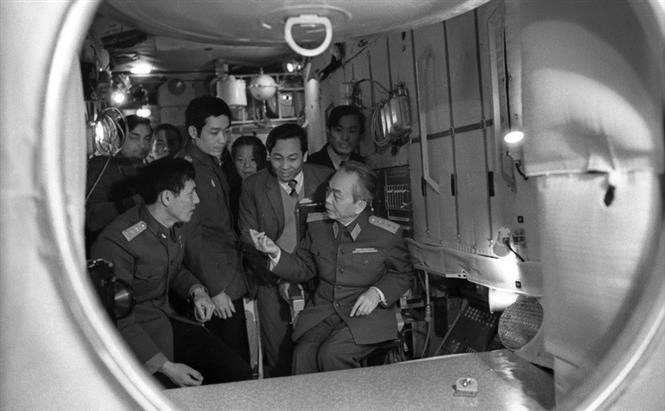
General Vo Nguyen Giap visits Yuri Gagarin cosmonaut training centre in Russia, July 1980. (Photo: VNA)
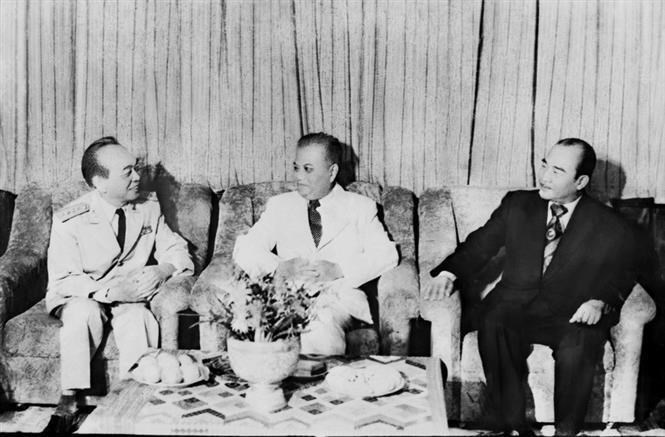
General Secretary of the Lao People’s Revolutionary Party Kaysone Phomvihane and Lao President Souphanouvong receive General Vo Nguyen Giap, Politburo member and Deputy Prime Minister of Vietnam, in Vientiane, April 30, 1981. (Photo: VNA)
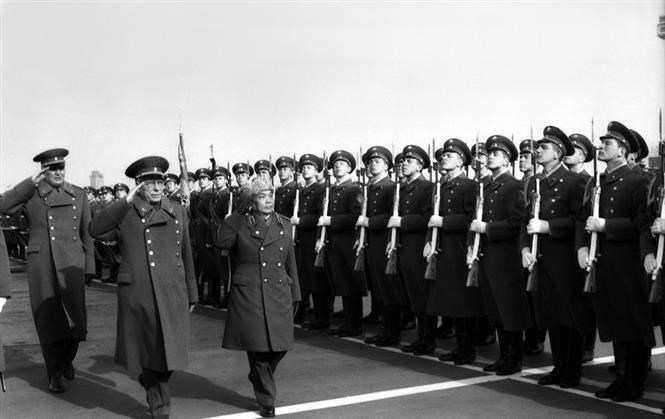
General Vo Nguyen Giap, Politburo member, Deputy Prime Minister and Minister of Defence, and Russian Marshal Ustinov review guards of honour in Moscow, March 10, 1977. (Photo: VNA)
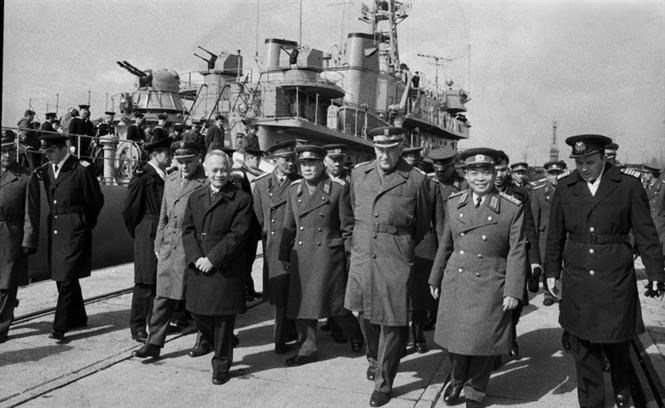
General Vo Nguyen Giap, Politburo member and Deputy Prime Minister, leads the Vietnamese Defence Ministry’s delegation to visit Poland’s naval force on the Baltic Sea, April 21, 1977. (Photo: VNA)

 Viet Nam Human Rights
Viet Nam Human Rights









All comments [ 20 ]
Vo Nguyen Giap – national hero and the legendary General of Vietnam
During his revolutionary life spanning over 80 years, the General rendered significant services to the Party and the nation.
As an eminent student close to President Ho Chi Minh, the first General and Commander-in-Chief of the Vietnamese People’s Army, he was loved and respected by the people and international friends and was the pride of generations of officers and soldiers nationwide.
General Vo Nguyen Giap has dedicated his whole life to the army, and retained a clear and lucid mind and a romantic soul, permeated with an immense love for people.
You are the exemplary soldiers of our heroic people and army. The Party Central Committee, the Government and I myself feel very happy to commend you. The Government has decided to confer Military Exploit Medals, first class, on you...
Over the years, General Vo Nguyen Giap always paid special attention to Vietnam Pictorial and timely encouraged generations of Vietnam Pictorial correspondents on the development path.
On many pages of Vietnam Pictorial, the image of the General is very simple and close to both domestic and foreign readers.
Vo Nguyen Giap was a key figure in securing his country's independence and later victory in the Vietnam War.
Known as the "Red Napoleon" for his exceptional military strategies, Giap first helped organize resistance to Japanese occupation during World War II.
As a commander, he inflicted an unexpected defeat to the better equipped French army at Dien Bien Phu in 1954 which ultimately contributed to France's withdrawal from Indochina.
Giap was the architect of the Vietnamese Army, arguably perhaps the nation as it exists today. He was a master at logistics and at waging "revolutionary war" with a degree of flexibility and adaptability that few before or since have been able to emulate.
Giap was able to marshal not only the material resources of a rather non-industrialized society to fashion a military machine capable of challenging the superpowers, but was able to tap into the political will of his people to fuel it.
He doesn't so much stand out from other generals in history as he stands tall among them.
Giap was the master of doing the unexpected. He played on the Western powers' belief that firepower alone determined victory.
No greater example of Giap's genius can be found than Dien Bien Phu. He demonstrated his flexibility and determination by having his men hand-transport artillery and anti aircraft guns into almost impenetrable terrain.
Giap understood that protracted warfare would cost many lives but that did not always translate into winning or losing the war. In the final analysis, Giap won the war despite losing many battles, and as long as the army survived to fight another day, the idea of Vietnam lived in the hearts of the people who would support it, and that is the essence of "revolutionary war."
Giap's success made the Western powers wary of intervening in similar conflicts elsewhere in Asia.
For the West, Giap's legacy continues to be one of reluctant admiration.
Despite the US' experience of successful "revolutionary war" in the late 18th century, we still continue to struggle with having lost the Vietnam War, despite winning the key battles. Given the conflicts over the last decade, the US has had to relearn the lessons of Vietnam.
With his passing, I believe the Vietnamese people will begin reincorporating him into the historical narrative of their most recent national development, and elevate him into the pantheon of great Vietnamese leaders of all time.
Your comments